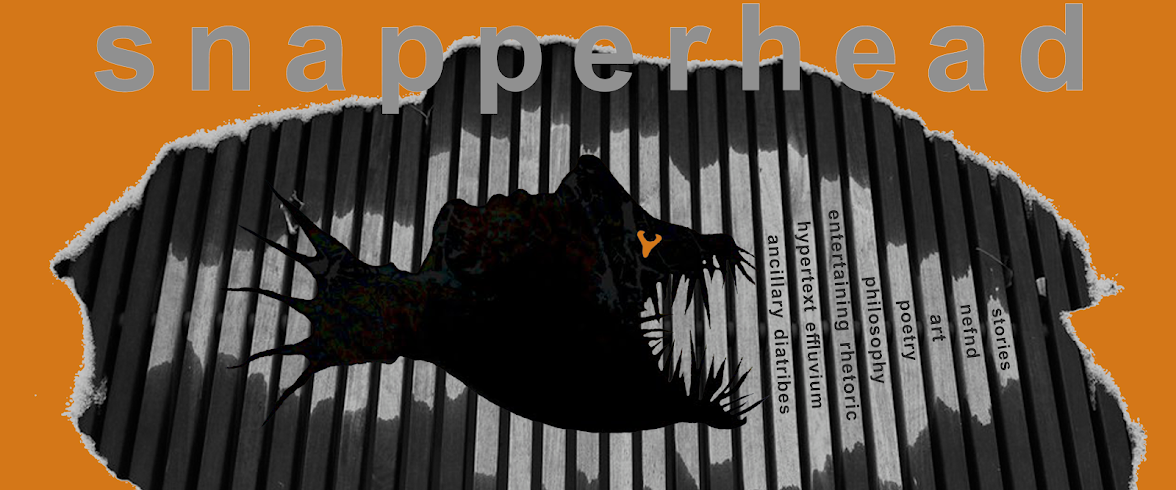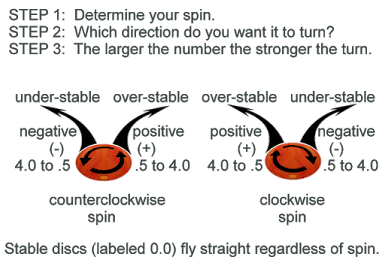I have no reason to suspect a correlation-causation connection between the post I happened to write 4 days ago (on 1 Feb 2020) and the fact that average page views have now returned to their pre-Nov 2019 levels.
It is certainly only coincidence that yesterday I had exactly 707 views; last month I had over 23,000 views; in the last four months they totaled about 100K, and that the unnamed "google experiment" ended at 0100 today, 5 Feb 2020. Baseline appears to have returned to zero. During the "experiment" baseline hovered around 40, which means that at any given moment 40 people on-average were viewing something on snapperhead.
From now on, I expect views may exceed the pre-Nov 2019 level of an average of 20 per day, but I suspect that can be attributed to a slight increase in interested readers/viewers who have either bookmarked or RSS subscribed. I estimate that number to be ten to fourteen people. And, I base that figure on a small-but-noticeable increase in post-specific comments during the "experiment".
Hello to you twelve viewers! Welcome back. You were in a crowd (a throng, if you will) for the last few months, but those members of the "experiment" are elsewhere now. And, they were never really here. Not like you are.
Thank you for your continued interest. If you are still reading this most-ancillary of ancillary diatribes, you might also be a member of the nonexistent asperger's-are-us fellowship. One way to know if you are a member is: did you notice that I didn't use a capital A in the nonexistent fellowship's name? Did you brain-hiccup for a microsecond? (Did it glitch again when you read the word you in the previous sentence and thought it should-maybe be your?)
Yes? Did you remember—sorry, of course you did; you remember everything (both a blessing and a curse)—that you can receive your nonexistent fellowship membership card if you let me know via email or comment or em-tele-pathic focus? I haven't actually designed it yet. And, yes, that did you remember bit was faux authorial-courtesy. Wrap your grey-matter around that. But the nonexistent fellowship card could exist outside of my imagination if there were a demand (for it to exist).
If you did not have a brain-hiccup, nor a glitch, weeell. See. Asperger's is named after a person. People's names are nouns, which are normally capitalized (in English)*. I also appreciate your views as well. I was being facetious when I mentioned e-t-p focus. That is not a real thing. I made it up.
While some of us do share a heightened, empath-level, ability to "read" people (because some of us are inordinately hyper attuned to details, and you-we-everyone constantly communicates non-verbally much more clearly than with your-our vocal chords) we do not have a supernatural ability to transmit our thoughts to others with the traits that have been labeled Asperger's. Of course we do not.
We are all nonmembers of the NonExistent Fellowship of the Neuro-Diverse (NEFND) ** and we are actively not recruiting.
The portion of traits I possess—that Mr Hans Asperger, grouped into a small umbrella-term autistic psychopathy (in his 1944 paper about social-isolation; which came from an idea he stole from a woman)—are, today, known by the eponym Asperger's, and are only a small faction of traits encapsulated by the nonexistent fellowship of the neuro-diverse (name, logo, and acronym contrived/devised in this paper; which contains the massive umbrella-term: neurodiverse, I appropriated
● Hyper-sensitive olfactory system. Smells influence my emotions. Good smells are amazing for short periods of time. Some of my favorites are Lilac, Lemon Myrtle, Cinnamon, Creosote, Honeysuckle, Petrichor, and Wintergreen. Bad smells can be stiflingly or jarringly uncomfortable for even the briefest moments. My worsts are Alcohol-based-powdered-Rose-Petal (some cheap perfumes and talc body-powders); nicotine and alcoholic-drink-based-sweat; and any strong body/breath odors caused by bacteria. When I notice the odors, if I can not move a sufficient distance away, I feel my anger rising. Other feelings caused by bad odors: headache, melancholy, lack of appetite, inability to focus.
● Hyper-focused on visual details. When looking at something new, my eye is drawn to minute flaws (easily overlooked by most people). Over time, I can become accustomed to these minor irregularities and eventually I can either stop noticing them, or at least stop being bothered by them. This makes me very task-oriented. Once engaged, I can get lost in the creation or the work.
● Intentional lack of eye contact. Related to my visual-detail hyper-focus, I lose my train-of-thought when/if I stare at a person's face. I can look people in the eye when they are talking, or if all that is required of me is to answer brief, simple questions, but if I am engaged in an interesting conversation with someone, I have to turn my eyes to a blank space when I formulate my words. If I look at a person's face, my mind begins to constantly interpret every muscle movement, glance, expression, and tick—an apt analogy: I find it difficult to think about what to say next when you are shouting at me with your body language.
● Urge to collect. I learned to control my desire to compile items, which provide a pleasurable visual stimulation, very early in my life. I decided that I would only collect items which fell within a very small set of parameters (size, material, cost, and quality) and then reinforced and updated those parameters as I matured (and my aesthetics changed). I, currently, have four collections: spheres, knick-knac objet d'art, small green stained glass, and Buff-style hats.
● Disdain small talk. When I read about the Asperger's category normally labelled: Possesses low social skills, lack of empathy, inability to read the emotions of others, all I can see is that it was written by an extrovert who believes their way of life is how everyone should live, that they think it's vastly important to be the life of the party and to have hundreds of Facebook friends. I can read the emotions of others (even while they are staring at their phone) although at least half of people with Asperger's can not. I would not use the term lack of empathy in this context—I simply say: I do not enjoy associating with shallow, unintelligent, vapid people. I am not on Facebook, nor on Twitter. I hold you in disdain is not the same as I lack empathy for you.
● Verbose. I attempt to curtail my rants. I try to edit and shorten my stories. I am not always successful. I enjoy "burying the lead." It seems anti-climactic to tell my BFR story with the intro "how would you like to hear about how an octogenarian got my HMMWV out of a ditch in Korea?" or to start my Clatsop State Forest camping tale with, "Have you heard my mountain lion story?" I enjoy painting a verbal canvas. I am verbose.
● Above-average intelligence. I don't include this one when asked to list the traits face-to-face. It seems weird that I don't mind being pretentiously disdainful of ignorance, but when pointing out that I'm smarter than most, I shirk away from what feels like braggadocio.
Normal is everyone and that encompasses a wide range of neurodiverse people . . .
Some neurodiverse (qualified-nonmembers of nefnd) have Asperger's traits and can be hyper-sensitive to light, touch, tastes or sounds (or a combination of some or all). Because these qualified-nonmembers recognized a need to explain their hypersensitivities to the unqualified (as they grew up) they may claim:
- Sunglasses at night are "because bright lights cause migraines".
- Don't eat certain foods because "they are allergic" (I enjoy telling people I am a super-taster to explain my avoidance of specific foods).
- They "dislike crowds" or "are afraid of germs" (instead of saying that casual touching, shaking hands, or being bumped by fellow-concertgoers makes them extremely uncomfortable).
- They "hate that music" (instead of saying anything at that volume makes them nauseous).
Some have balance issues, awkward gaits, or vocal atonality. Most of which can be explained by a lack of self-awareness, combined with an early childhood learned-trait to never compare ones own behaviors to that of anyone else (because most unqualified preschoolers are hobgoblins), and a decrease in concern for what all other people think (because they tease you when you tell them what you think).
Some share Asperger's traits (comorbidity) with "neurological disorders" [I use quotes because yesterday's or today's pathological disorders have been, are, or will be, considered normal (e.g.: depression, anxiety, OCD, ADD, dyslexia)].
Many with Asperger's are too far along the spectrum to self-analize, quantify, recognize, and/or take steps to ameliorate the more debilitating traits they possess—because of an incapacity to recognize decreased quality-of-life behaviors (e.g. extreme collectors eventually become "hoarders" and the overly verbose, incapable of differentiating/filtering their thoughts and internal dialogue from conversational topics, become "ramblers").
* Did you read my first use of the prepositional phrase in English and instantaneously wonder what languages, if any, don't capitalize what is referred to as proper nouns in English? And, when I did not expound with a list of languages, here, are you - now - going to look it up? I have a free clear-plastic nonmembership card for you.
** The Icelandic word for named or for committee is (approximately) nefnd. Of course I would know! Doesn't everyone extensively research their prospective brand name, acronym, and logo? An acronym which means Named in some other language (or even Committee, which is a visual treat to my brain—three double letters) oh the irony.






























































